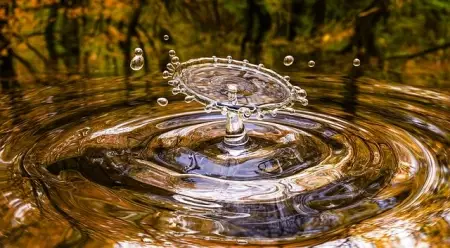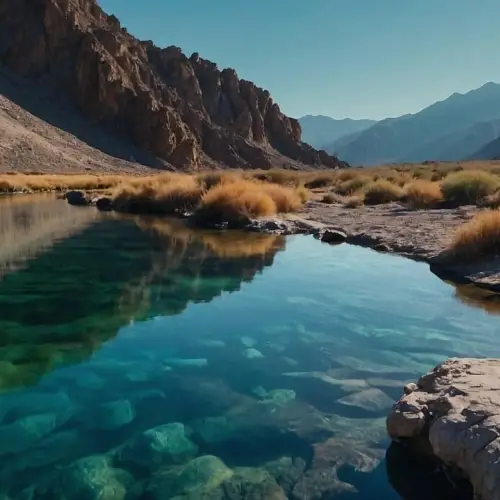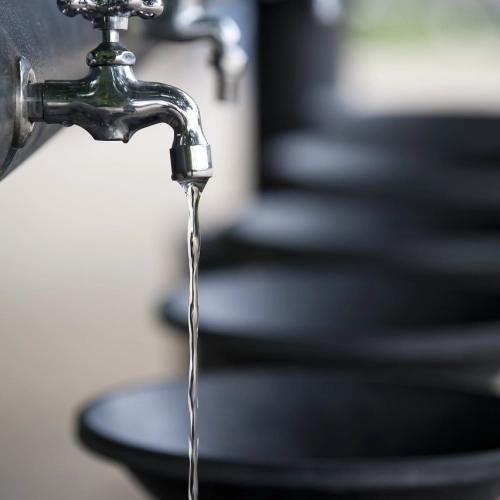
Water is a vital resource for the existence of life on our planet. Although it may seem abundant, it is important to understand that only 3% of the water on Earth is fresh, and of that fraction, only a small part is accessible to us.
This valuable resource plays a crucial role in our health, environment and economy.
Health & Wellness
Water is essential for our health and well-being. Approximately 60% of the average adult's body weight is made up of water. This percentage can vary slightly depending on factors such as a person's age, gender, body composition, and hydration status.
Water is found in all cells, tissues and organs of the body and plays a crucial role in numerous physiological functions, such as regulating body temperature, transporting nutrients and eliminating waste.
Drinking enough water is essential for the proper functioning of our organs and systems.
Additionally, water is also crucial for personal hygiene and cleanliness, helping to prevent diseases and keep us healthy.
Environment
 Water is a fundamental component of ecosystems around the world.
Water is a fundamental component of ecosystems around the world.
Oceans, rivers, lakes and wetlands are home to an incredible diversity of life. These aquatic habitats provide food, shelter and breeding sites for numerous species of plants and animals, from small microorganisms to large marine mammals.
Furthermore, aquatic ecosystems play a crucial role in climate regulation and water purification.
Importance of water in climate change
Water plays a crucial role in climate change as an actor and victim.
On the one hand, increasing global temperatures cause changes in the water cycle, intensifying evaporation and altering precipitation patterns. This can lead to extreme weather events such as droughts, floods and more intense storms.
Additionally, water acts as a thermal regulator, absorbing and releasing heat into the oceans and atmosphere, influencing regional and global climate patterns.
On the other hand, climate change also affects the availability and quality of water, increasing scarcity in some regions and causing contamination of fresh water sources due to increased temperatures and human activity.
Agriculture and food security
Water is an essential resource for agriculture and food production. Crops need water to grow and develop, and water availability directly influences agricultural productivity.
Irrigation systems help supply water to fields, allowing a variety of foods to be grown that sustain entire populations around the world.
According to the Food and Agriculture Organization of the United Nations (FAO), around 70% of the fresh water available in the world is used for agriculture.
Energy and economy
Water also plays an important role in energy generation and economic development.
Additionally, many industrial sectors rely on water in their production processes, from manufacturing to mining. It is estimated that up to 20% of freshwater extracted worldwide goes to manufacturing, according to the World Bank.
Below we show two examples of the importance of water in electricity generation:
Solar energy
Water plays an important role in solar energy through several technologies, one of the most prominent being solar thermal energy. In this type of solar energy, water is used as a medium to capture and store the sun's thermal energy.
In solar thermal energy systems, solar collectors are used to concentrate solar radiation to a focal point. This concentrated heat is used to heat a fluid, commonly water or a mixture of water and glycol, within the solar collectors. The hot water generated can be used directly for heating applications, such as domestic hot water in homes, or to drive an electricity generation cycle.
Additionally, water can be used as a thermal storage medium in solar thermal energy systems. Instead of using solar energy directly when it is available, the heat generated can be stored in large, thermally insulated water tanks. This thermal storage allows solar energy to be used even when the sun is not present, such as at night or on cloudy days.
Hydroelectric power
Hydroelectric plants harness the energy of moving water to produce electricity, a renewable and clean energy source.
This form of renewable energy is based on the water cycle and the use of solar radiation for its operation. Hydropower harnesses the potential energy of water stored in reservoirs or natural streams, which in turn is driven by the water cycle, including evaporation caused by solar energy that is then precipitated as rain or snow.
Limitations and savings examples
We currently face a series of challenges when it comes to the management and conservation of water resources.
Pollution, overexploitation and climate change threaten the quality and availability of water around the world. To achieve this, measures must be taken to protect this vital resource and guarantee its equitable access for all people and ecosystems.
Examples for saving water
Water conservation starts with simple actions we can all take in our daily lives.
 Below we propose some ideas to save water at home and in daily life:
Below we propose some ideas to save water at home and in daily life:
- Repair Leaks : Regularly inspect your faucets, toilets, and pipes for leaks and repair them immediately. Even a small leak can waste a significant amount of water over time.
- Install water-saving devices : Consider installing low-flow shower heads, faucets and bathroom fixtures that reduce water consumption without sacrificing water pressure.
- Take short showers : Limit the time you spend in the shower. Reducing the duration of your showers can save a considerable amount of water.
- Turn off the faucet : Turn off the faucet while you brush your teeth, wash the dishes, or soap your hands. Running water unnecessarily contributes to water waste.
- Collect rainwater : Install rain barrels in your yard to collect rainwater and use it to water plants or wash outdoor areas.
- Reuse water : Use fruit and vegetable rinsing water to water plants instead of pouring it down the drain. You can also reuse laundry rinse water for other household purposes, such as cleaning floors or bathtubs.
- Wash dishes efficiently : Fill the sink with water to wash dishes instead of constantly running the tap. You can also consider using a water-efficient dishwasher if possible.
- Install low-flush toilets : Dual-flush toilets or low-flush toilets use less water per flush, which can result in significant long-term water savings.
- Water the garden wisely : Water the garden early in the morning or late at night to reduce evaporation. Use watering techniques such as drip or trickle irrigation to apply water directly to the roots of plants.
- Education and awareness : Educate your family and friends about the importance of conserving water and encourage them to take similar steps in their own homes.